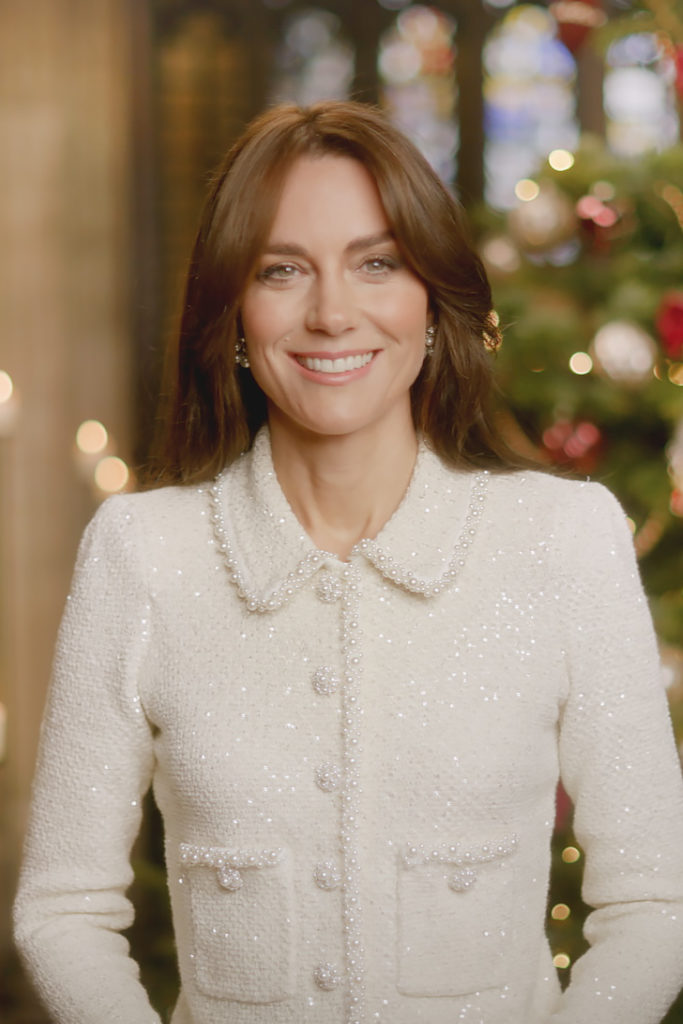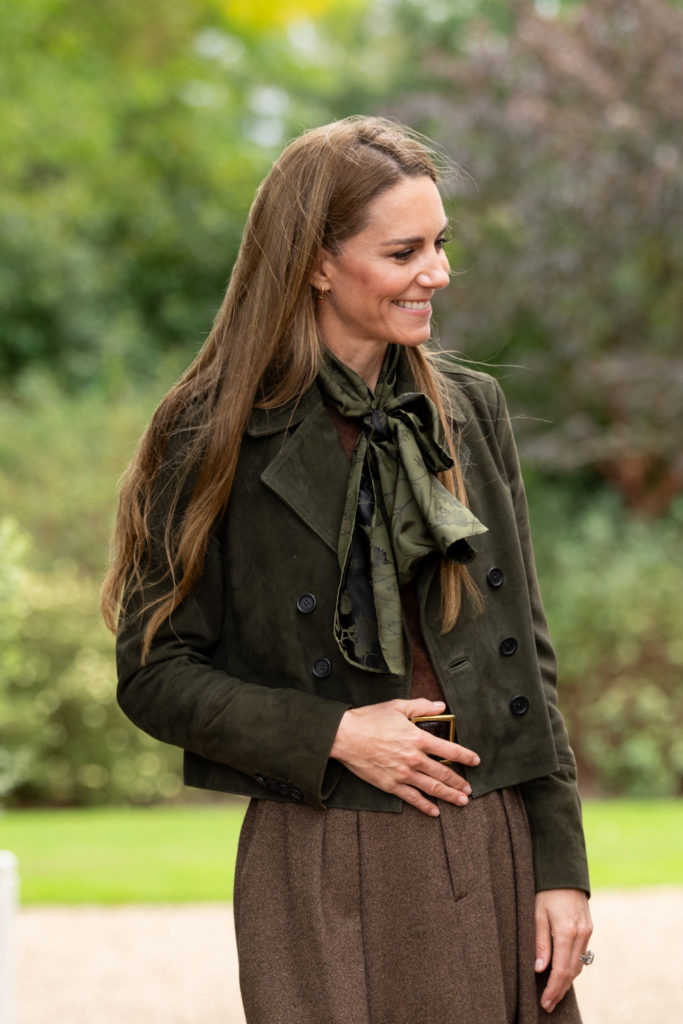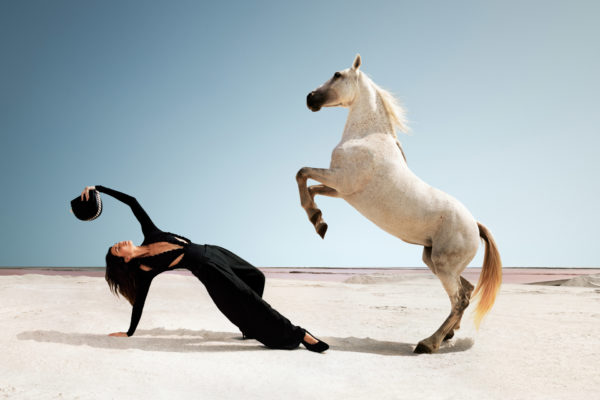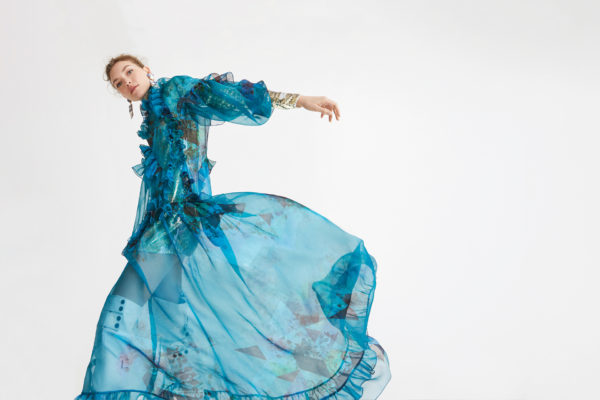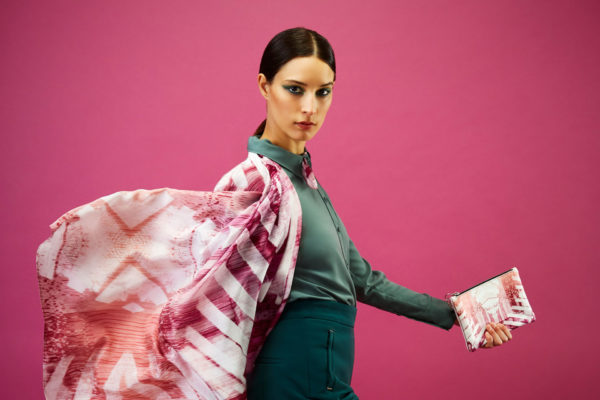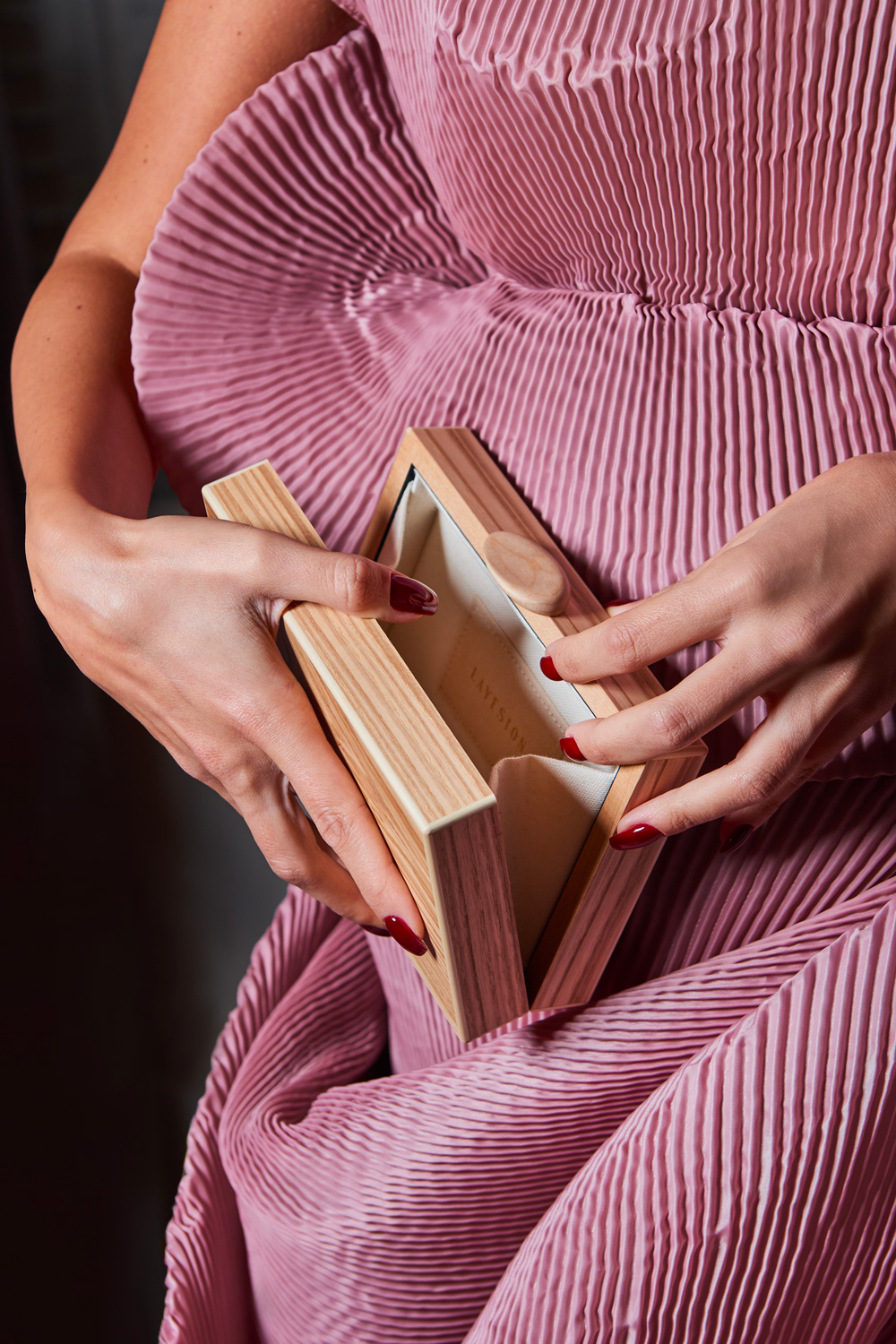
What’s In This Greener Fashion Founder’s Closet
By
1 year ago
Flavia Laye-Sion on LAYESION's partnership with the Green Futures Project + her favourite accessories
We talk to Flavia Laye-Sion, the founder and designer behind regenerative lifestyle brand LAYESION, about what she’s shopping for a more sustainable sartorial fix, and hear about the brand’s new charitable partnership with the Green Future Project.
Sustainable Fashion Founder Flavia
Tell me about the journey that brought you to LAYESION. What was the lightbulb moment?
I studied fashion design in Paris, at a time when sustainability was only really talked about in relation to textiles. It made me want to do things differently, break away from the traditional fashion calendar; I realised I wanted to make something that felt meaningful, handcrafted – and in small batch.
I’d grown up between the Seychelles and Switzerland, exposed to the beauty of nature and the work of local artisans who’d create extraordinary pieces with simple materials. The ‘lightbulb moment’ came when I realised that I wanted to bring these two elements together.
And what drew you to designing bags?
Bags are the perfect marriage of fashion and function – a practical necessity, but also a statement piece that expresses personal style. I wanted to make something that could become part of someone’s life story, that they’d carry and cherish. Plus bags transcend gender and occasion, they’ve got something of a universal appeal.
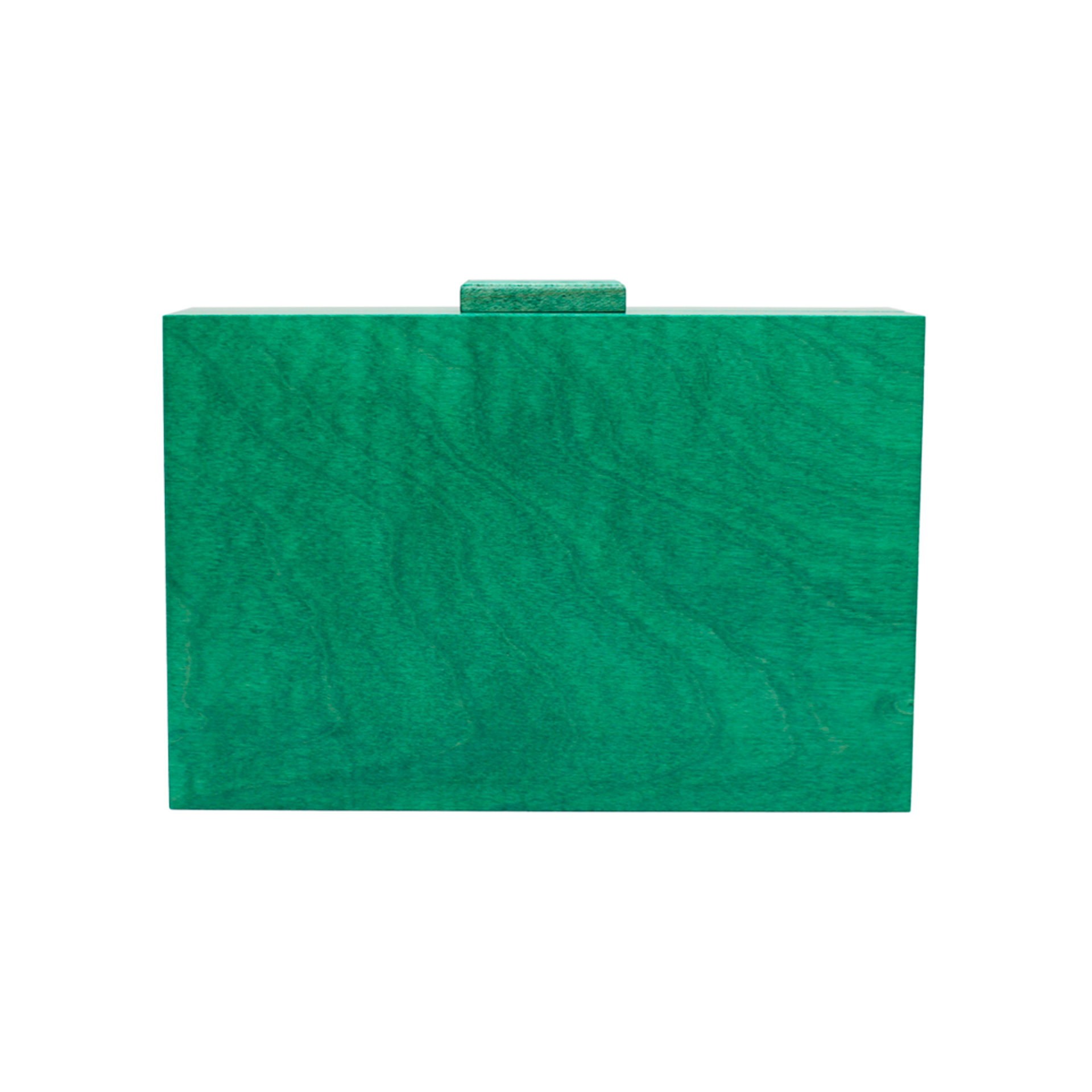
The EMARUS bag, £1,255
You choose to work with wood. That feels pretty unusual – what’s behind your material choices?
It’s organic, timeless, and each piece [of wood] tells a unique story through its grain and texture. Working with wood feels like bringing a piece of nature into everyday life, and it also aligns well with my commitment to sustainability.
And it’s humbling! It’s a living material that doesn’t always behave the way you expect, pushing you to adapt and get creative. I love the challenge of transforming it, particularly as it’s often associated with masculinity, ruggedness, and turning it into something more elegant, feminine and modern.
LAYESION is a regenerative company. Talk us through how that works.
From sourcing materials, to offsetting our environmental impact, regeneration is woven into every step of our manufacturing process. We work with wood sourced from responsibly managed forests, and we collaborate with suppliers who share our commitment to sustainable practices.
We give back to nature through our partnership with Green Future Project, too. We plant ten to 15 mangrove trees (and donate to a preservation project in Ecuador) per bag sold. It means we’re not just minimising impact but actively contributing to reforestation. We want to create a net positive impact on the planet over just neutralising our footprint.
And how are the bags actually made?
Each LAYESION bag begins with a design concept, often drawn from nature, architecture or personal experience. We select the perfect wood veneer to press onto the base structure. Then, the bag is meticulously crafted by our master artisan, including its hand-carved clasps. Each is totally unique. After it’s assembled, varnished and polished, I line it with an ethically sourced fabric – dead stock materials, treasures from my travels, or fabrics provided by clients wanting to upcycle old material into something meaningful. And then we customise – the possibilities are endless, and it’s slightly different every time.
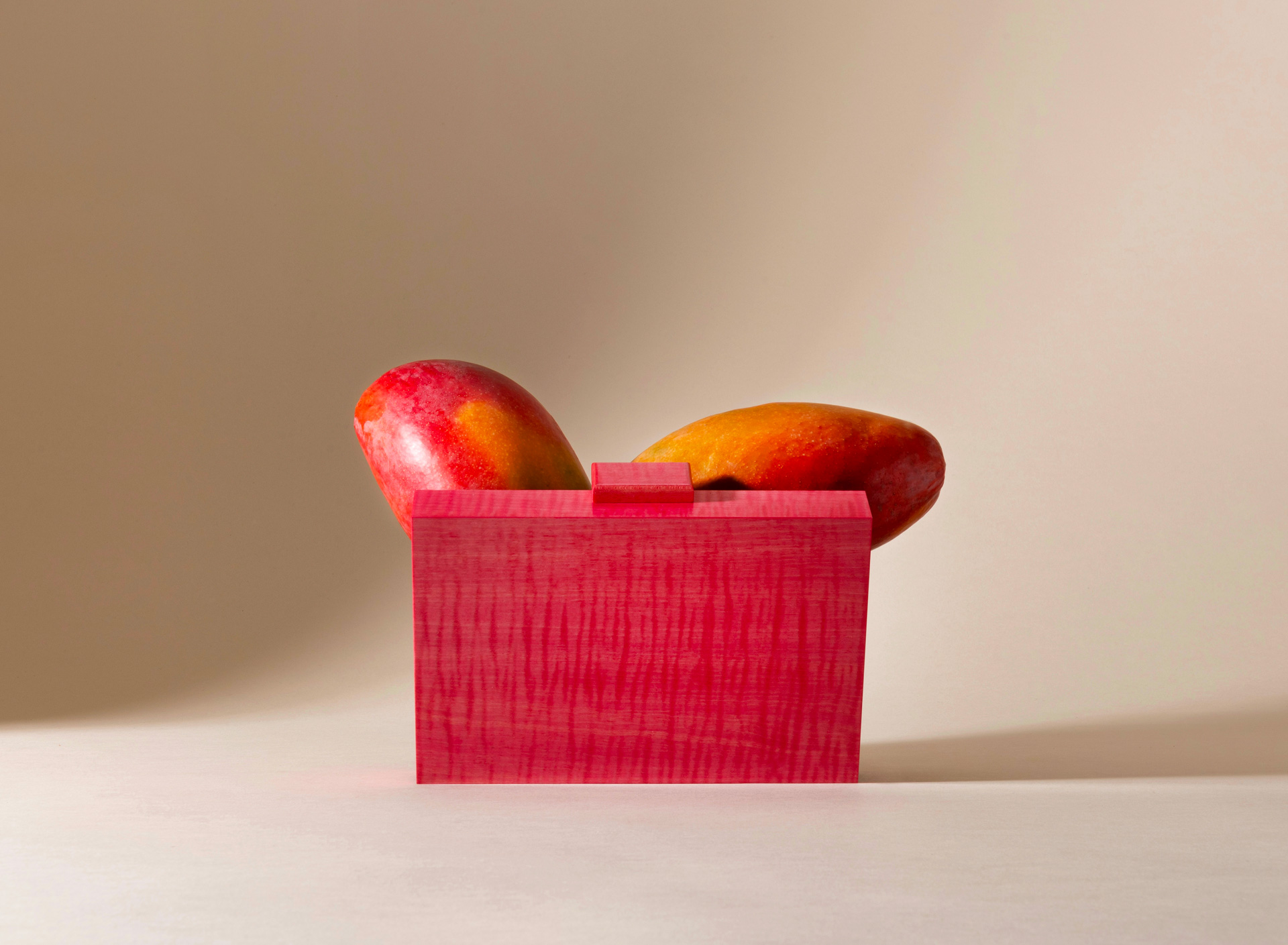
The Fuxia box clutch, £1,250
A lot of your collection is situated against veg – did you take much inspiration from food in creating the new bags?
Nature has always been a huge source of inspiration for me, and food is an extension of that. There’s something incredibly grounding about the connection between the earth, its produce, and the materials we use. The imagery in our collection is meant to celebrate the natural world in all its forms – whether it’s the grains of wood or the vibrant colours of fruits and vegetables. It’s a reminder that our products, like the food we eat, come from the earth and should be appreciated for their natural beauty and the resources they represent.
Talk to me about your partnership with the Green Future Project. How did it happen? What do you hope it will do?
We didn’t want to manage multiple partnerships; it can be complex and overwhelming. Green Future Project is a platforms that offers a variety of restoration, preservation, and renewable energy projects all in one space – and it’s one of the most important aspects of our sustainability efforts. As I said, we plant mangrove trees, donate to the Canandé Reserve, Ecuador. We also support the Vilamatsa Reforestation Site, Madagascar.
For bespoke orders, we give clients the opportunity to select the project their purchase supports, meaning they’re not just buying a luxury item, but actively contributing to environmental restoration.
The Swiss have been pretty ahead of the game in pursuing circular economy approaches and founding lower-waste brands. Is there a cultural reason behind that?
I think there is a strong cultural connection to nature and sustainability in Switzerland. Growing up, I witnessed the Swiss dedication to efficiency, quality, and environmental responsibility. There’s a deeply ingrained respect for the natural world, and it reflects in how the country approaches waste, consumption, and design. Switzerland’s forward-thinking mindset, combined with a heritage of precision craftsmanship, has made it a leader in the circular economy. It’s all about creating lasting quality while being mindful of the resources we use, and that’s a philosophy I’ve embraced with LAYESION.
What does ‘quality over quantity’ mean to you?
I believe that owning a smaller number of well-crafted, timeless pieces is far more rewarding than chasing trends with disposable items. Quality means durability, meaning, and something that you can treasure for years – even decades. It’s about investing in pieces that you connect with, and that can be passed down as heirlooms.
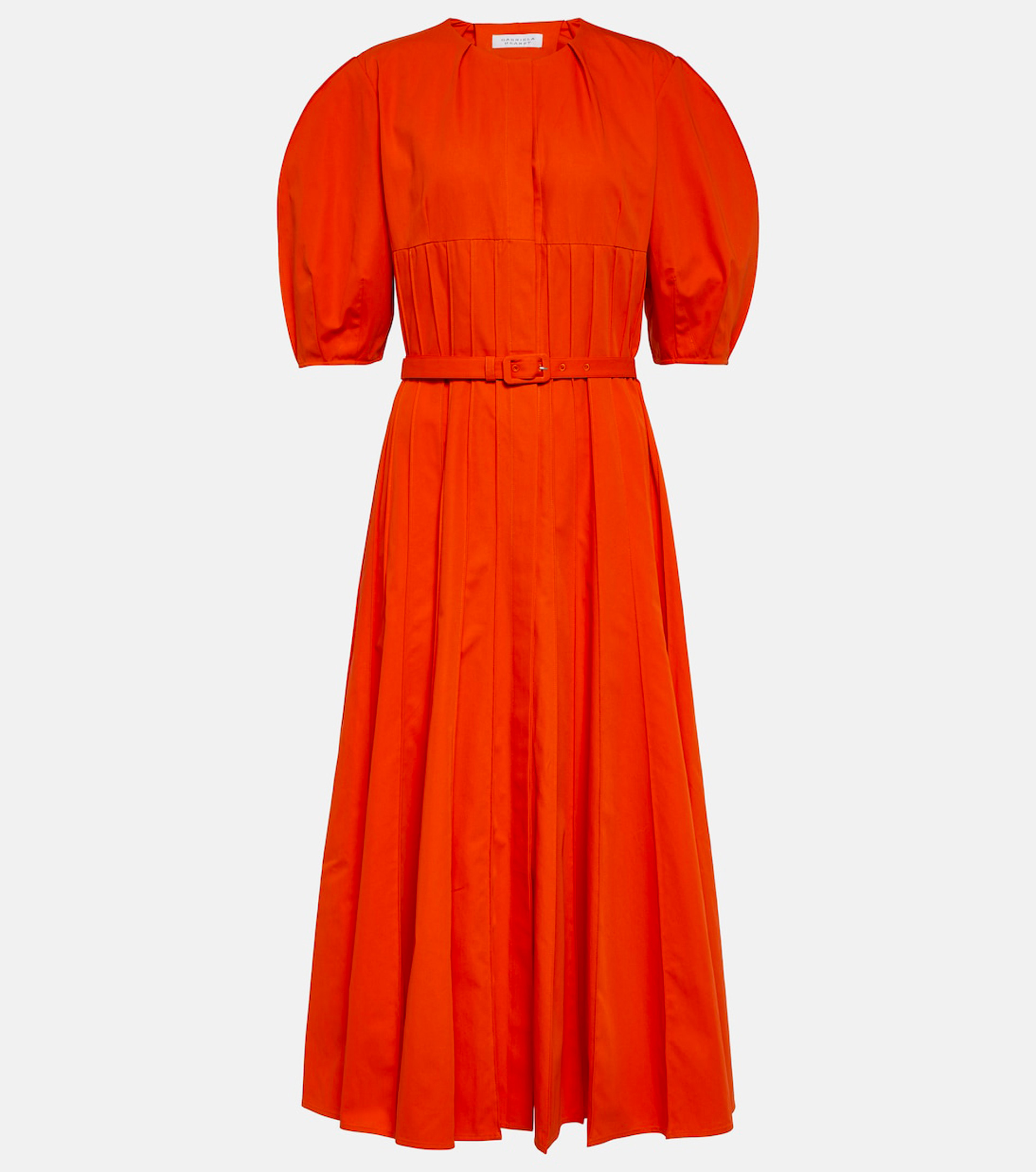
Flavia admires Gabriela Hearst designs – cotton midi, £1,555. mytheresa.com
Are there any brands you admire or covet for your own wardrobe?
I admire brands that stay true to their ethos while pushing the boundaries of design and sustainability. Pioneers like Stella McCartney and Gabriela Hearst set inspiring standards in this space. I also admire Loewe for its commitment to artisanal craftsmanship, preserving traditional techniques while maintaining modern relevance. Recently, I’ve been drawn to Isla de Gar’s woven silk bags from London and Thaden’s beautifully sculptural pieces from Zurich.
When it comes to my own wardrobe, I’m an accessories fiend. I typically build a classic base and then elevate it with unique accessories, jewellery and vintage pieces. Lately, I’m particularly excited about the rise of the lab-grown diamond market and the innovative designers emerging in that field such as Kimaï and LOEV.
In your view, what’s the future of fashion?
I believe the future of fashion lies in a more mindful and sustainable approach. People are beginning to grow weary of fast fashion and, thankfully, are becoming more aware of the environmental and social consequences of their choices, prompting brands to evolve. Innovation in materials – such as bio-fabrics and upcycled textiles – is already playing a transformative role. Ultimately, I envision and hope that the future of fashion will focus on creating products that are not only aesthetically beautiful but also make a positive, lasting impact on the world. For me, this will always be the guiding principle.

